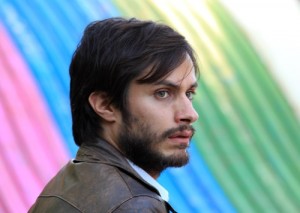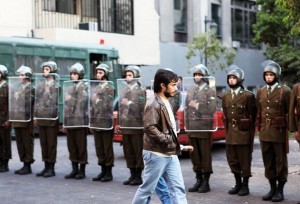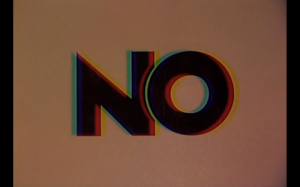Pablo Larraín’s No and the Aesthetics of Television
Published on Seismopolite (Vol. 10, May 2015).
I have also presented this paper at the PCA/ACA Annual Meeting. Latin American Film & Media Session.April 1-4, 2014, New Orleans, Louisiana.
Pablo Larraín’s No (2012) is a Janus-faced film, documentation and interpretation. The movie reconstructs the events surrounding the 1988 Chilean referendum through the perspective of René Saavedra (Gael García Bernal), an advertising executive hired to run a television campaign to end General Augusto Pinochet’s rule. By adopting outdated U-matic 3:4 video technology from the period, Larraín gives the impression that the events were recorded as they occurred. The result is what I refer to as “fictionalized documentary,” that is, a film that blends archival television documents and staged scenes that reconstruct the real events in such a way that the end result appears to be a reportage. A movie made by combining contemporary technologies with existing analogue footage from the No campaign would have resulted in an uneven style. Thus, to give his work a creative unity, Larraín produces an “ideal documentary-like footage” that reflects the visual culture at a historical turning point for his country. READ MORE




Leave a Reply